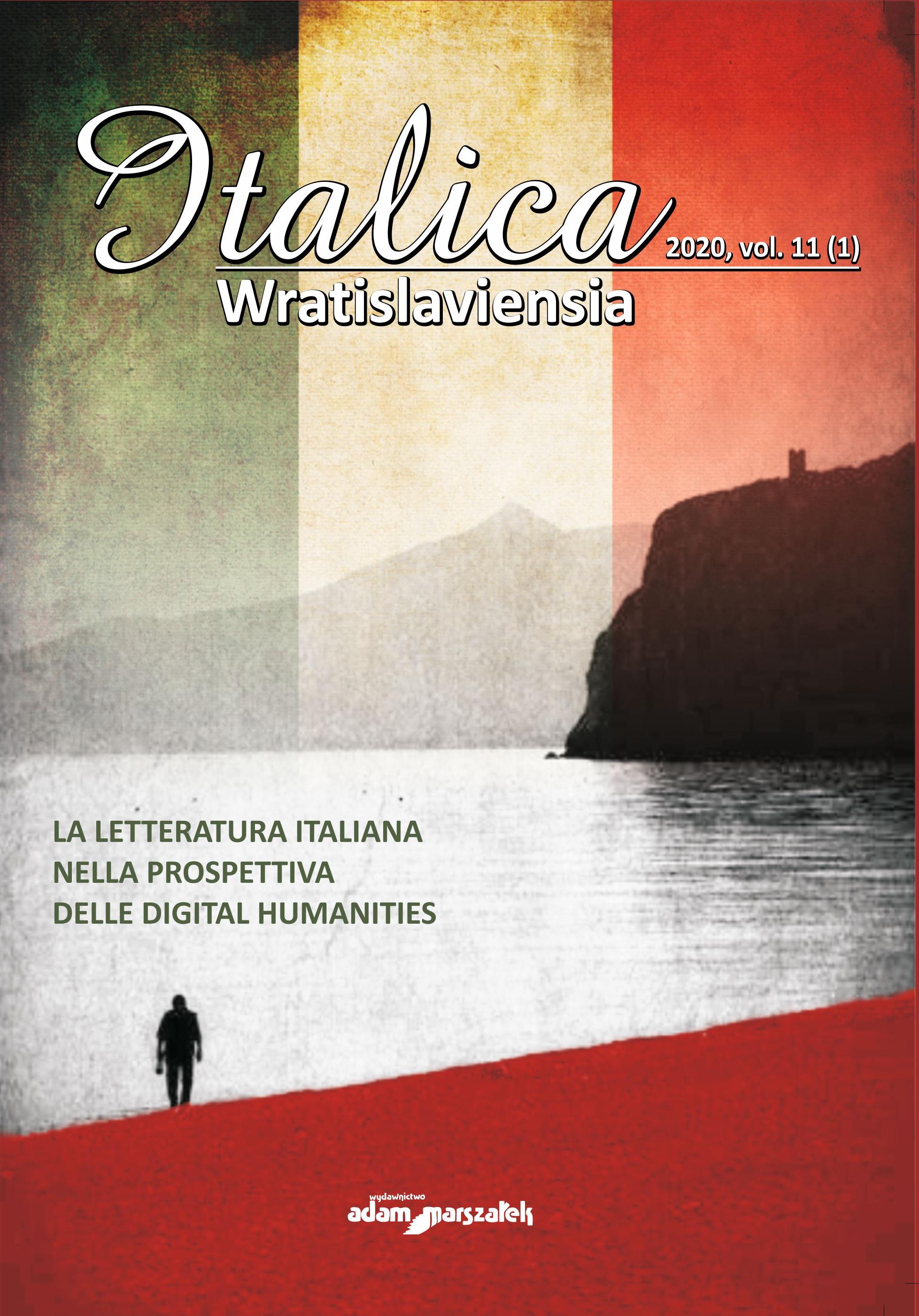Digital Humanities: alcuni tratti caratteristici
Digital Humanities: Some Distinctive Features
Author(s): Giacomo FerrariSubject(s): Language and Literature Studies
Published by: Wydawnictwo Adam Marszałek
Keywords: digital humanities; computational linguistics; linguistic resources; mark-up; technology for humanities
Summary/Abstract: Rather than reporting on original research, this paper seeks to define the complex and rather diffuse domain of digital humanities by examining the historical and technological origins of the discipline. The distinction between the practice of the computer-mediated storage and retrieval of data relevant to human artefacts and the creative building of ‘digital culture’ draws a rough dividing line across the objectives of digital humanists. A historical outline of the distant origins of digital humanities suggests that the discipline is foundationally and intrinsically linked to computational linguistics and the development of linguistic resources. The boundaries of the discipline have been shifting concomitantly with the broadening of the scientific horizon and the evolution of dedicated technologies. Text mark-up (stemming from text annotation) and the multimodal facilities offered by ordinary browsers are the two basic techniques which have promoted the progressive development and expansion of digital humanities. These two techniques are closely interconnected as the language operated by the http protocol (HyperText Transfer Protocol) derives from the same source as that used for text mark-up. Hypertext and multimodality allow extending the uses of the computer to store and access humanities data of various kinds, including images, videos and sound recordings. Finally, the declaration of entities, as a further development of mark-up, makes it possible to apply semantic web techniques to carry out advanced research studies. The field of creative digital culture is very large, and there are abundant software applications that support such creative pursuits. Consequently, several forms of art have largely profited from technological advancement. Given this, the paper also addresses technological obsolescence as a serious problem in digital humanities.
Journal: Italica Wratislaviensia
- Issue Year: 11/2020
- Issue No: 1
- Page Range: 11-29
- Page Count: 19
- Language: Italian

